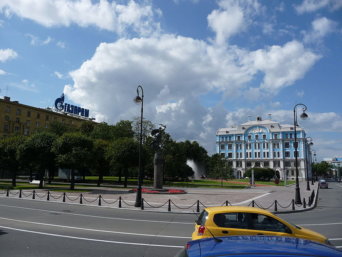- About
- Topics
- Picks
- Audio
- Story
- In-Depth
- Opinion
- News
- Donate
- Signup for our newsletterOur Editors' Best Picks.Send
Read, Debate: Engage.
Is it time or calculation? The EU Competition Commissioner Margrethe Vestager formally charged Gazprom, one of Russia’s largest companies and a dominant supplier to much of central and eastern Europe, with breaking EU antitrust rules.
It’s a move that will increase tensions between Europe and Moscow, says Marat Terterov, chair of the Brussels Energy Club.
According to euronews he said: “There is a strong view inside Russia, in particular inside the Russian energy establishment – Gazprom and the energy ministry – that this is highly politically motivated case. I am not so convinced. I would say to you that the jury is still out whether this a political case or whether this is really the European institutions trying to enforce the rule of law.”
That was end of April. What happened since? Gazprom now has the opportunity to comment. The Russian gas monopoly already dismissed the allegations by the EU Commission. The accusations were unfounded, the company said. Russian Foreign Minister Sergei Lavrov criticized the EU's allegations against Gazprom. The antitrust case was in breach of the partnership agreement between Moscow and Brussels in 1999, he claimed in a radio interview. Gazprom has fulfilled all agreements with European partners under current EU law, he said.
The objections raised against the work of Gazprom were only one stage of the ongoing anti-trust proceedings. The EU Competition Commission is proofing the case if Gazprom is overpricing its clients in Eastern Europe further. Last year Gazprom,s turnover was 3.99 trillion rubles (around 69,4 billion euros) according to Russian accounting. Therefor, the EU antitrust fine could be up to 6.9 billion euros accordingly.
The fallout over the Ukraine crisis brought severe pain to the Russian economy and prompted the EU to press ahead with the launch of its Energy Union.
Although Gazprom would still have the option of settling the case, even after charges are filed, according to euronews "analysts say that Moscow is unlikely to agree to any compromise given the existing political tensions over Ukraine and Western sanctions against Russia."
